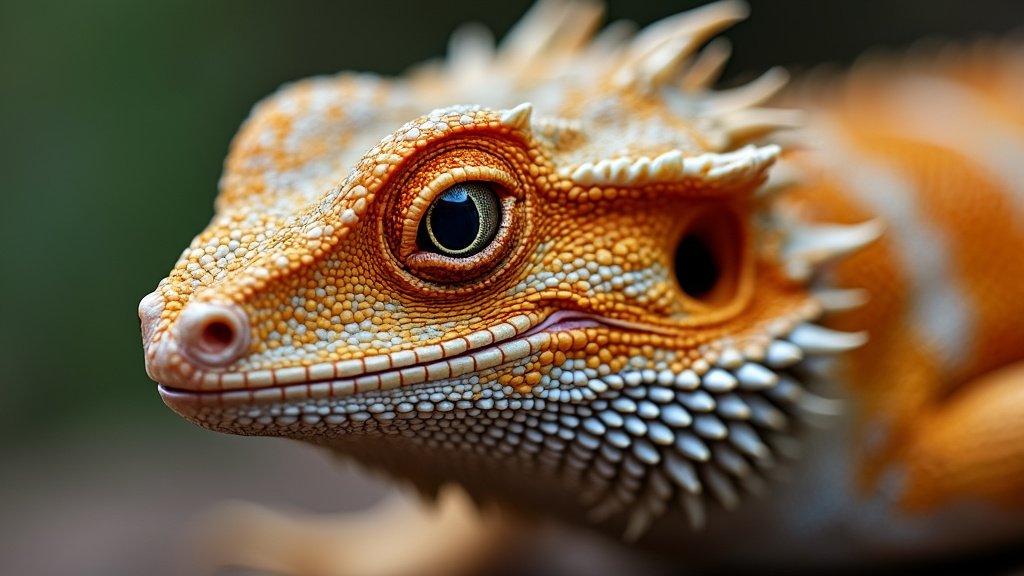Welcome to Dug’s Bugs! As an enthusiastic and experienced keeper of exotic pets, including the ever-popular bearded dragons, I’m thrilled to dive into today’s topic. With a big smile, I’ll guide you through the ins and outs of bearded dragon diets. One common question we often get at Dug’s Bugs is: Can bearded dragons eat cranberries? Let’s start this fun journey together!
Understanding Bearded Dragon Nutrition
Basic Nutritional Needs
Before we answer the cranberry question, let’s step back and understand the basic nutritional needs of our scaly friends. In the wild, bearded dragons eat a mix of insects, vegetables, and some fruits. This balance is important for their growth, health, and happiness.
A balanced diet for bearded dragons includes:
- Proteins: Mostly from insects like crickets, mealworms, and dubia roaches. These little critters give energy to our dragons.
- Vegetables: Greens like collard greens, dandelion greens, and mustard greens provide essential vitamins and minerals.
- Fruits: While not their main food, a juicy treat now and then can be both fun and healthy.
- Supplements: Calcium and vitamin D3 supplements are crucial to prevent bone problems and keep their bones strong.
Making sure your bearded dragon gets this balanced diet is vital for its health.
Common Dietary Staples
When it comes to daily feeding, there are some go-to foods that should be in your bearded dragon’s regular diet:
- Insects: Crickets, mealworms, and dubia roaches should be the main protein sources.
- Greens: Fresh, leafy greens like collard greens, turnip greens, and mustard greens should be staple veggies.
And for special occasions, we have:
- Fruits: Sometimes treating your dragon to fruits like apples, blueberries, and today’s topic – cranberries.
Can Bearded Dragons Eat Cranberries?
Nutritional Profile of Cranberries
Cranberries are tart, tangy, and packed with nutrients. They offer:
- Vitamin C: Great for immune support.
- Fibre: Helps with digestion.
- Antioxidants: Good for overall health.
The bright red berry might seem like a great addition to a dragon’s diet occasionally, but let’s look at the pros and cons more closely.
Potential Risks
While cranberries have their benefits, they also come with some risks:
- Acidity: Cranberries are quite acidic, and too much acid can upset your bearded dragon’s stomach.
- Sugar Content: Cranberries have a high sugar content that can cause obesity and other health problems if fed too much.
- Digestive Issues: The fibre content, while usually good, can sometimes cause digestive problems if not given carefully.
Personal Experience
Over the years, I’ve seen how different foods affect my bearded dragons. Offering cranberries has given mixed results. Some of my dragons love them, happily munching away, while others act like I’ve given them something really weird.
I’ve noticed that dragons who usually eat a varied and balanced diet seem to handle cranberries better. Moderation is key!
Safe Practices for Feeding Cranberries
Preparation Tips
Ready to give cranberries a try? Here’s how to prepare them safely:
- Wash thoroughly: Remove any pesticides or dirt.
- Cut into small pieces: Make them easy for your dragon to chew and digest.
Consider cranberries as an occasional treat. A piece or two once a week is enough, so you don’t overload your dragon with sugar and acidity.
Combination with Other Foods
To keep the diet balanced, it’s good to pair cranberries with other foods:
- Mix with Greens: Add cranberry pieces to a salad of collard greens and turnip greens.
- Serve alongside Insects: Offer a small amount with their usual protein-rich meal for variety.
These combos help make the meal more nutritious and easier to digest.
Monitoring Health After Feeding
Observing Reactions
After introducing a new food like cranberries, watch your bearded dragon’s reaction. Positive signs include:
- Usual Activity Levels: No change in energy or behaviour.
- Healthy Appetite: Continued interest in regular meals.
Watch for negative reactions too:
- Diarrhoea or Constipation: Any changes in stool consistency.
- Lethargy: Less activity or unwillingness to eat.
When to Consult a Vet
If you see any bad reactions or ongoing problems, it’s best to check with a vet. Regular vet visits help keep your bearded dragon healthy and catch problems early.
Vets can also give personal advice on your dragon’s diet to ensure they get the right nutrients.
Conclusion
Summary
In summary, bearded dragons have specific nutritional needs that must be balanced carefully. Cranberries can be a tasty and healthy addition to their diet, but only when fed in moderation and with the right prep. Always watch how your dragon reacts to new foods and consult a vet if needed.
Final Thoughts
Trying different foods while keeping your pet’s health in mind helps ensure a happy and healthy bearded dragon. Enjoy the process and the bond it creates with your scaly friend!
Call to Action
I’d love to hear about your experiences! Have you fed cranberries or other fruits to your bearded dragon? Share your stories with us in the comments below and subscribe to Dug’s Bugs for more exotic pet care tips and guides. Let’s keep our bearded dragons happy and healthy together!
For more detailed information on the best diet for bearded dragons, visit our detailed guide.

